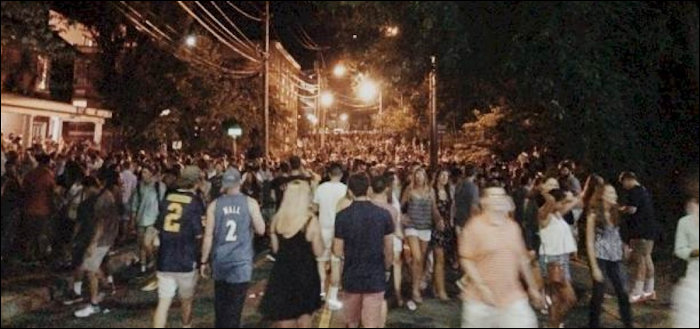T. Rees Shapiro with the Washington Post has written an excellent article describing how the University of Virginia’s drunken party culture leads to unfortunate sexual encounters, and how difficult it is to sort out afterwards what happened.
The story focuses on a single incident in which first-year woman Haley Lind and a first-year athlete, who asked to remain unidentified, met at a party, got drunk and went to an upstairs bathroom to have sex. The next day Lind woke up feeling that she had been violated in some way but was unable to remember the details. Basically, her argument was this: She was too drunk to have given consent to sex. The athlete was surprised by the allegation. Lind, he said, never objected. Indeed, she had put a condom on him.
According to UVa’s sexual assault policy, someone who is incapacitated by drink cannot give informed consent. But the athlete accused of sexual assault was himself too drunk to know that Lind was too drunk to give consent.
Writes Shapiro:
Their ordeal provides a sobering portrait of the real-world consequences of college party culture. It exposes the challenges students face in deciphering consent while drunk and in piecing together fragmented memories. It also shows how schools are placed in an almost untenable position of trying to determine what happened and who is at fault — if anyone.
Real, unambiguous cases of rape do occur on college campuses, but they are a small fraction of the “sexual assault” incidents that take place. There is a huge problem in America’s colleges and universities, but it is not an “epidemic of rape,” as it has been described for political purposes. The problem is the culture of drunken party sex, and that’s what needs to be addressed.
— JAB



